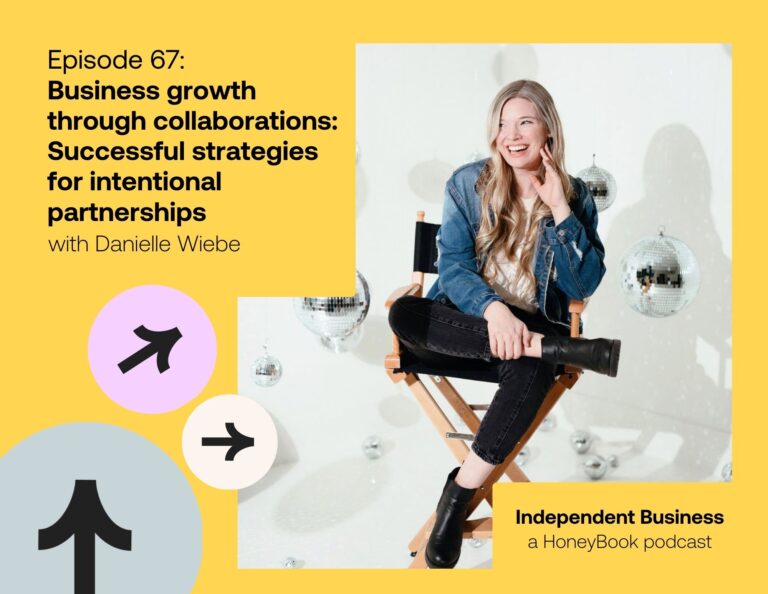
After speaking with so many different creatives over the past few years, it’s become very clear to me that we all have something in common:
We’re all exhausted. We’re all on the edge of burnout. We’re all running so much that we forget to take care of ourselves.
But as small business owners, we are our businesses. If we’re not at our best, our businesses can’t be at their best either.
During the last few years, the terms “self care” and “mindfulness” have been tossed around everywhere you look. And while the thought of weekly mani/pedis and long bubble baths is fantastic, I’m a firm believer that there’s so much more to self care than what you might see on Instagram
Something I can’t stress enough is that self care can and should look different to every single person reading this article. What might work for me, won’t work for you—and that’s OK!
Here’s why self care and mindfulness are so important for creatives, plus some tips for keeping you on track when it comes to self care.
It’s called self care for a reason!
It won’t be easy, but you absolutely need to take time to focus on you. Not your spouse, not your kids, not your business: but you!
For me, yoga became my form of self care 8 years ago when my anxiety and panic attacks were at their peak. A friend suggested I give yoga a try and I mean it when I say it has truly changed my life. So much, in fact, that I became a yoga teacher 5 years ago with the hopes of helping others feel the relief I felt after establishing a regular yoga practice.
Whether you get your self care through yoga or CrossFit, running or reading, knitting or bible study – it’s important to find something that’s good for your own mental wellness.
Self care can even look like getting up from your desk every hour to take a break from editing and emails to do a few stretches, grab a cup of coffee, or take a walk outside.
Too often as creatives, we forget that we’re human beings and that first and foremost we need to take care of ourselves. We’re trying to be everything to everybody and that gets exhausting.
Please don’t get me wrong, it’s easy to do when you love your job. But, in the long run, you and your business will suffer if you keep this up.
I firmly believe that as a creative economy, we can do better. We HAVE to do better.
I read a quote a few years ago and it truly struck a chord with me that I want to share with you.
“Self care isn’t always lush bath bombs and $20 face masks. Sometimes it’s going to bed at 8 p.m. or letting go of a bad friend. It’s forgiving yourself for not meeting your impossible standards and understanding that you’re worth it.”
Your self care needs to come first; before your business, before your clients, and before your friends and family.
If you’re not taking care of yourself first, then all of those areas in your life will suffer. That’s not fair to anyone.
What about mindfulness?
Whatever self care looks like for you, I want you to be fully aware of how you feel—body, mind and spirit—when you are doing that activity.
That awareness is known as mindfulness.
According to mindful.org:
“Mindfulness is the basic human ability to be fully present, aware of where we are and what we’re doing, and not overly reactive or overwhelmed by what’s going on around us.”
It’s a form of meditation where you suspend judgment about yourself or what’s going on around you, and simply focus on the workings of your mind. It’s a way to take stock of where you are and how you’re feeling.
Mindfulness can be cultivated while sitting, walking, practicing yoga, or just lying down.
Let’s be clear about something though: many self care practices don’t involve mindfulness—and that’s okay. For example, it may help you release stress to play a few hours of video games, but that doesn’t necessarily help you focus on yourself.
So while it’s perfectly acceptable to participate in self care activities that reduce your stress, be sure to make time for some mindfulness here and there as well.
3 Ways to Make Mindfulness & Self Care a Priority
It’s much easier to accept that mindfulness and self care are important than it is to actually make them a part of your life. Here are a few quick tips to making self care a reality.
Step 1: Discover what your version of self-care looks like.
What fills you up and makes you feel joy? Is it working out or attending a fitness class? Is it starting a book club or attending a moms group? Maybe you love to paint or doodle on an iPad, or work a puzzle or crochet. Perhaps you’re happiest when you meditate in the morning or take a long walk in nature.
Your version of self care or mindfulness shouldn’t feel forced, so I would encourage you to find something that makes you feel content and truly happy.
If you’re looking for some cost-friendly self-care ideas, here are 15 ways to practice self care on a budget.
Step 2: Put it in your calendar!
Treat your version of self care like you would any other appointment or meeting.
Write it down in your planner or add it to your Google Calendar so you can see it on your to-do list. I find that if you add it into your schedule, you’re more likely to follow through with this commitment to yourself.
Step 3: Don’t make excuses. I mean it!
It’s so easy to get overwhelmed by your never ending to-do list. But if you don’t make self care a priority, then you’ll always find a reason as to why you can’t do it.
So even if this is technically adding something else to your list, it’s something that’s absolutely necessary for your health and happiness.
Make a self care plan now
Every month going forward, I want you to schedule time daily, weekly and monthly to truly focus on something that fills you up and makes you feel joy.
Remember, it doesn’t have to take up your whole day—it may just be 20-30 minutes.
I can promise you that when you’re finally able to balance your self care with every other aspect of your life and business, then you can truly experience the benefits of being fully present in every moment of your life.
Give it a try and let me know how you feel!



